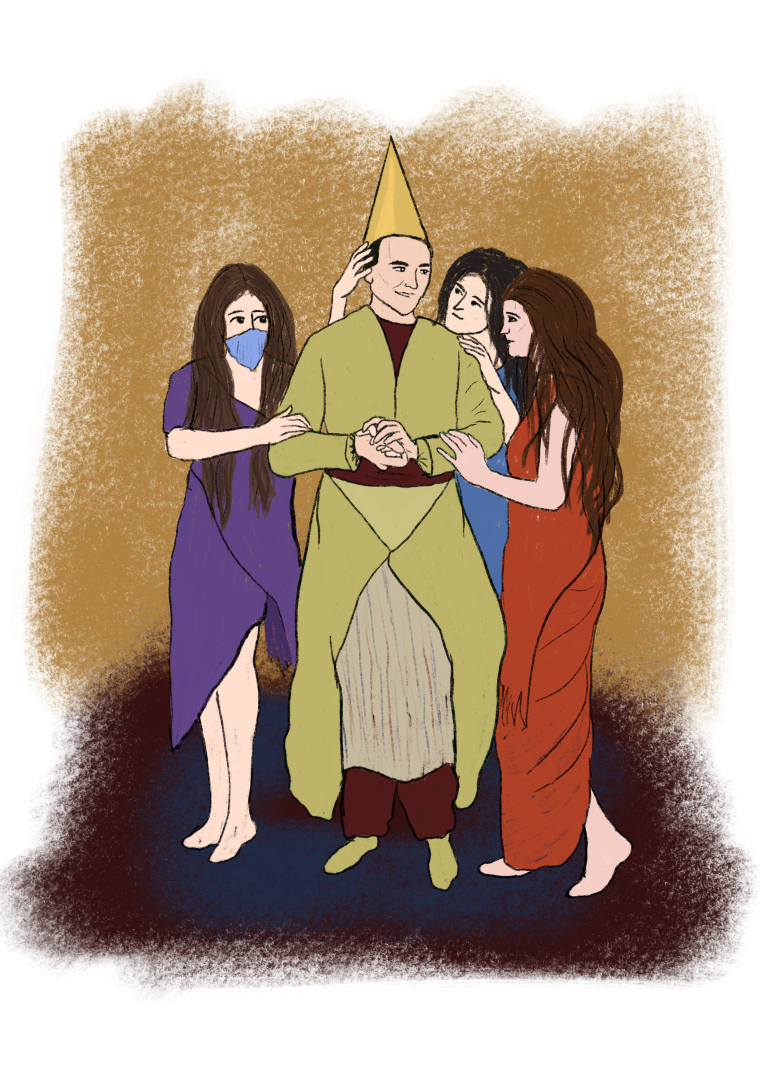
“A sheikh was very afraid of being replaced. He elaborated a sophisticated plan to keep his position. He took all the precautions necessary. He ended up hiring his substitute.”
Episode 5 - (dis)loyal Singer - eunuchs, castrati and music
Short Summary
In this Danetkas Podcast episode, the host presents a riddle involving a sheikh’s intricate plan to avoid being cheated by hiring a eunuch as a loyal servant for his harem. However, the plan goes awry when the eunuch’s youth and angelic voice lead the women to fall in love with him.
The episode delves into the historical role of eunuchs, specifically castrati, in society and music. It explores the ancient practice of castration, the use of castrati in early opera, and the Catholic Church’s prohibition of hiring castrati in 1878.
The episode also mentions Farinelli, a famous castrato, and plays a clip from Handel’s “Lascia Ch’io Pianga” as sung in a biographical film about Farinelli. The discussion sheds light on the unique and complex history of eunuchs and their impact on both society and the world of music.
Hello and welcome to another Danetkas Podcast. I’m your host, Francisco Chaves and in this podcast we will play the Danetka: (dis)loyal singer.
A Sheikh was very afraid of being replaced, he elaborated the sophisticated plan to keep this position. He took all the precautions necessary. He ended up hiring his substitute. What was the sheikh’s plan and who substituted in?
And what is actually a sheikh? It seems to be a kind of Arabian Lord or Arabian master.
In the picture we see the sheikh, sitting on the chair or his throne, I don’t know, surrounded by three beautiful women.
I will now read the five Rigolettos that we have for this story. In case you’re listening to this podcast for the first time, the Rigolettos are the secret hints that will help us solve this riddle.
The first Rigoletto is: I can have many wives, but they cannot have many men.
So the first Rigoletto points to the fact that this sheikh, apparently can have many wives, but the wives cannot have many men. How can that relate to the story?
Maybe we need additional hints.
Second Rigoletto: Don’t worry. He’s not a threat. He can accompany your women. So someone can accompany women. And is not a threat. Hmmm. Maybe a kind of servant for the sheikh
Third Rigoletto: But what’s your secret? You look 20 years younger. So someone has a secret that makes him look 20 years younger.
Fourth Rigoletto: He sings like a child. So, someone sings like a child. How can that relate to the story and the women in the picture? And now the fifth and final Rigoletto is: I know we don’t have a future, but I still love you. Who loves who in this Rigoletto, who doesn’t have a future?
And there is a singer in this story because of the title of this Danetka. (dis)loyal singer. Is the singer loyal or not loyal in the story?
I will now read the answer.
Feel free to pause the audio.
The answer:
A sheikh was trying to find a good, loyal servant. He had a harem with many wives and the servant would be the only man allowed to be around them. The sheikh wanted to make sure that his wives would stay loyal, so he hired a eunuch (castrated man). Unfortunately, the plan didn’t work out well: as the eunuch never reached puberty, his handsomeness, youth and angelic voice persuaded all the women to fall in love with him.
So this story is about eunuchs and their role in society and music.
Castration is any action, surgical, chemical, or otherwise, by which an individual loses use of the testicles: the male gonad. It is unknown when castration was first practiced, nor where it was invented. It may be that it arose independently in more than one place, but there is evidence that it was practiced as far back as 4,000 BC. Castrated men — eunuchs – were often admitted to special social classes and were used particularly to do burocratic work or run the palace household: in particular, the harem. We, the creators of the game Danetkas, got inspired by the fascinating story of Eunuchs and made up this Danetka. Eunuchs are very important in the history of music. A castrato (plural: castrati) was a type of male singer with a very high voice, similar to a child. The effect was produced either through castration, which was the most common, or because of some hormonal issues. The word castrato literally means castrated. Such singers were very sought after in the early days of the opera. Most of the main soprano roles in operas by Handel and other composers of that time were written for castrati, since women were not allowed to act on the stage. Nowadays they are almost always sung by female sopranos, since there are no castrati left. The practice was widely common among the Catholic Church until Pope Leo XIII prohibited the hiring of castrati by the church, in 1878.
One of the most famous castrati in the history of music is the Italian singer Carlo Broschi, known as Farinelli.
In 1994, there was even a biographical drama film directed by Gérard Corbiau, a Belgium film director that narrates and tells the story of Farinelli. But how did Farinelli sound like? We don’t know, since he lived in the 18th century, we only know what people wrote about him. In the film, Farinelli singing voice was provided by having a mix of two singers: a polish Soprano, Ewa Malas-Godlewska, and a countertenor, Derek Lee Ragin.
So a male voice with a female voice were recorded separately and then digitally merged to recreate the sound of a castrato. We will now listen to George Friedrich Handel’s “Lascia Chio Pianga” sung as it is in the Farinelli film, by mixing the voices of these two singers. I hope you enjoy it.
